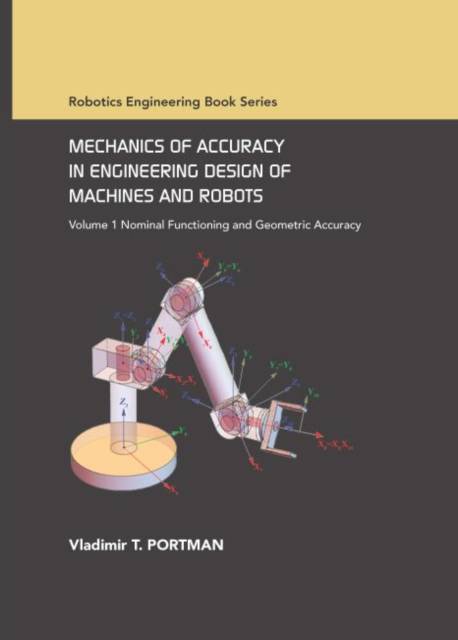
- Afhalen na 1 uur in een winkel met voorraad
- Gratis thuislevering in België
- Ruim aanbod met 7 miljoen producten
- Afhalen na 1 uur in een winkel met voorraad
- Gratis thuislevering in België
- Ruim aanbod met 7 miljoen producten
Mechanics of Accuracy in Engineering Design of Machines and Robots
Volume I: Nominal Functioning and Geometric Accuracy
Vladimir T PortmanOmschrijving
Accuracy is one of the fundamental characteristics and one of the most important indexes of the quality of machines and robots. It significantly defines and, in turn, depends on their structure and applications. Accuracy provision, maintenance, and enhancement are permanently hot problems in modern manufacturing and manufacturing science. In the very beginning, the accuracy was considered as a purely technological problem. Both academic and engineering approaches lay with development and standardization of the metrological requirements, interchangeability, and technical measurements. In the design-related disciplines, accuracy analysis was reduced to the tolerances and fit theory [1].
As the machine structures and machine kinematics have become more and more complicated, both from structural and informativeness viewpoints, the accurate manufacture of machine parts and their dimensional chains is not sufficient for providing machine accuracy, and there is a need to consider a machine as a whole subject in its own right [2, 3]. Error propagation has to be considered from the active element AE (cutting tool, measuring probe, working instrument fitted to the end-effector, etc.) throughout all machine structure up to elements to be processed - target element (TE) - taking into account not only geometry but also kinematics errors, static and dynamic deformations, and so on. This approach is of fundamental importance for industrial robots (IR), machine tools, and coordinate measuring machines (CMM), whereat the multi-coordinate structure with complicated kinematics is accompanied by heavy demands on accuracy and productivity.
Specificaties
Betrokkenen
- Auteur(s):
- Uitgeverij:
Inhoud
- Aantal bladzijden:
- 496
- Taal:
- Engels
- Reeks:
Eigenschappen
- Productcode (EAN):
- 9780791861615
- Verschijningsdatum:
- 8/12/2017
- Uitvoering:
- Hardcover
- Formaat:
- Genaaid
- Afmetingen:
- 178 mm x 254 mm
- Gewicht:
- 1070 g

Alleen bij Standaard Boekhandel
Beoordelingen
We publiceren alleen reviews die voldoen aan de voorwaarden voor reviews. Bekijk onze voorwaarden voor reviews.












